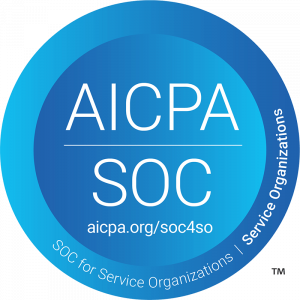Security at Densify
Cloud Infrastructure & Hosting
Densify is hosted in Amazon Web Services (AWS). AWS’s robust security and compliance framework underpins our infrastructure, including built-in encryption, end point protection, security grouping, and physical security controls. Learn more about AWS Security (https://aws.amazon.com/security).
Threat Detection & Monitoring
Densify takes a proactive and layered approach to threat detection and response. Our environments are continuously monitored using a centralized SIEM platform that collects and analyzes security events in real-time. A dedicated Security Operations Center (SOC) oversees this monitoring 24×7, enabling rapid identification and response to potential threats. We also leverage native cloud services, including AWS GuardDuty, to enhance anomaly detection, behavioral analysis, and threat intelligence across our infrastructure.
Perimeter & Network Security
Cloudflare Web Application Firewall (WAF) and DDoS protection services provide our first line of defense against external threats. Internally, network segmentation, strict firewall rules, and least-privilege access controls help prevent lateral movement and unauthorized access. IDS/IPS systems are actively monitored.
Identity & Access Management
We enforce strong password policies and support multi-factor authentication (2FA) across all user and admin access points. Administrative access to production environments requires 2FA and is limited to authorized, vetted personnel only. Role-based access control (RBAC) is applied across all environments.
Application Security
We follow secure software development practices, including peer-reviewed code changes, code analysis, and regular automated and manual testing. Third-party penetration tests are performed annually, with rapid remediation of any findings.
Data Protection
- In-Transit: All customer data is encrypted using TLS 1.2+ with AES-128 or stronger.
- At-Rest: Data is encrypted by default using AES-256 full disk encryption in AWS-managed storage.
- Backups: Daily immutable encrypted backups are stored offsite within AWS.
Compliance & Certifications

Densify is audited annually for SOC 2 Type 2 compliance. We also align our internal controls to ISO/IEC 27001 standards. Our security program includes policies covering encryption, patch management, access control, incident response, disaster recovery and more.
Secure Software Development Lifecycle (SSDLC)
Security is embedded into our development lifecycle from design through deployment. All changes go through rigorous testing and staging reviews. Patch management follows a regular schedule, with urgent security updates deployed as needed within 24 hours.
Customer Data Privacy
Densify does not collect or store personal identifiable information (PII) beyond name and email. All analytics are based on system-level configuration and performance data provided by the customer. We do not extract or access sensitive business data from customer environments.
Transparency & Trust
We are committed to transparency. Customers can request information about our security program, audit reports, or incident response processes. Upon contract termination, all customer data is deleted within 30 days in accordance with our data destruction policy.